BYUSCHOOLBYUSCHOOL OFMUSICOFMUSIC JJournal ournal



Ihavewrittenmuchabouttheimportanceofsharingourlight throughouttheworld.Aswedoso,people’slivesareblessed withwarmthandafeelingofjoy.Theydesiretofeelmoreof thatwarmthandjoyandsoseektoexperiencemoreofthelight.
Theycanalsobeinspiredtobeginsharingthelightthatis withinthem.Asimportantassharingourlightis,wemust constantlylookforwaystoreplenishourownlightthroughthe lightofothers.
OnthepagesofthisissueofourJournal,wecontinueto celebratethelightsharedbystudents,faculty,andemeritus faculty.Wealsocelebratethelightsharedwithusbyvisiting artists,pedagogues,andotherperformers.Throughtheirlight, oursaremadestrongerandbrighter.
This,then,isanotherimportantandsimpletruthtounderstand andrememberasweworktoliftandhelpothersaroundus:
Asweeachsharelight,wewillfrequentlyneedtorelyonthe lightofotherstorekindleourown.Thus,wecannotdoitallby ourselves.Weneedothersandtheyneedus.
"Justasonecandlelightsanotherandcanlightthousandsof othercandles,sooneheartilluminatesanotherheartandcan illuminatethousandsofotherhearts.”
—LeoTolstoyAsweletourlightshine,weunconsciouslygiveotherpeople permissiontodothesame.”
—MarianneWilliamsonEnjoythelightthatissharedwithyou.Thenfreelyshareyour lightwithothers.Remember,thereislightenoughtoshare!
 Dr.MarkAmmons AssistantDirector BrighamYoungUniversitySchoolofMusic
Dr.MarkAmmons AssistantDirector BrighamYoungUniversitySchoolofMusic
JournalEditors: ArielleCline,KateParrish,andSarahGriffin
"TheBYUSchoolofMusicseekstruthingreat music.Westrivetoleadinthecomposition, performance,teaching,andunderstandingof musicandtoservetheuniversity,TheChurch ofJesusChristofLatter-daySaints,andthe worldthroughthisdivinegift.


January 10, 12 & 14
Classical voice students competed for the coveted Singer of the Year award in the annual Young Artists of Voice competition.
January 11
Alexander Woods, violin, and Rex Woods, piano, recently performed a new work by BYU faculty composer Neil Thornock: Carillons. The composition was the centerpiece of the recital.
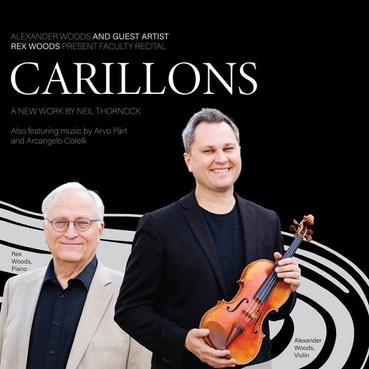

February 1
Miranda Wilson joined Prof. Michelle Kesler for a recital of cello duos, ranging from the Baroque period through today. Wilson is a cello professor at the University of Idaho Lionel Hampton School of Music.

February 2-4
Juilliard and Curtis Institute faculty member Robert McDonald visited the SoM piano division. He mentored students in masterclasses and private
lessons. He also gave a recital, featuring works from Beethoven, Debussy, and others. On February 9, he gave a virtual Oscarson Lecture. You can read more about Robert’s career, BYU visit, and lecture on page 11-15.
Image via musicacademy.org
 Image via University of Idaho
Image via University of Idaho
Image via atlanticcenterforthearts.org
February 8
Madeline Adkins (the concertmaster of the Utah Symphony) and Jason Hardink (principal keyboardist at the Utah Symphony) performed in a combined recital, featuring works by Amanda Rötgen-maier and Saint-Saens.

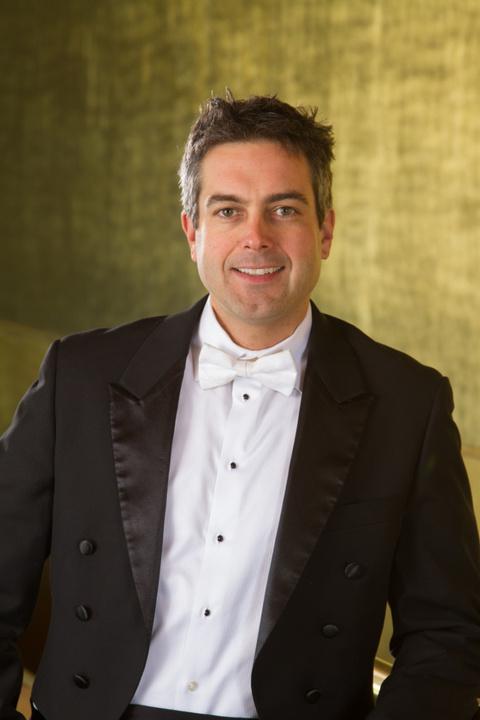
PAMELAZ
February 9
Pamela Z is a composer, performer and media artist who is best known for her solo works for voice with electronic processing. She performed a variety of contemporary electronic music.

February 10
The BYU Philharmonic combined with BYU Singers, Concert Choir, Men’s Chorus, and Women’s Chorus performed Beethoven’s Ninth Symphony at the Salt Lake
Tabernacle. The concert featured soloists Jennifer Youngs, Diane Reich, Isaac Hurtado, and Shea Owens, and was conducted by Kory Katseanas.

February 11
The BYU Group for Computer Music (G4CM) collaborated with several students from the BYU Department of Art to perform electronic works written by composers from BYU and the
University of Utah. Their performance facilitates collaboration between the two universities.
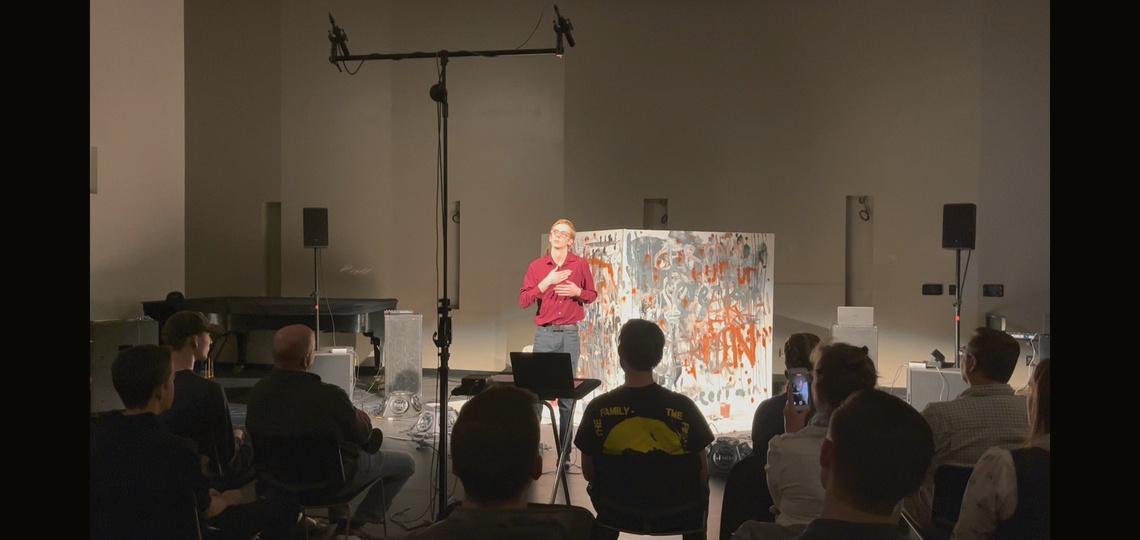
February 24
The CAN-AM trio specializes in commissioning new works for oboe trios. The group is made up of Sarah Hamilton (professor at

the State University of New York at Fredonia), Anna Mattix (professor at Buffalo State University and member of the Buffalo Philharmonic), and BYU’s own Geralyn Giovanetti (professor of oboe). Three of the four works performed in the recital were written specifically for the group and funded by a grant from the Canada Council for the arts.
Image via suunew.net
WOULDYOULIKETOBE FEATURED?
DOYOUKNOWSOMEONE
WHOSHOULDBE FEATURED?
EMAILUSAT MUSICEVENTS@BYU.EDU SOWECANHELPYOUR LIGHT SHINE!
The Juilliard School and The Curtis Institute of Music are two of the most prestigious musical institutions in the world. These schools have earned their renown not only because of the talented students that study there, but also because of the world-class musicians who teach there. Robert McDonald, Juilliard and Curtis faculty member, is no exception. Bob has toured around the world as a soloist and chamber musician, playing with major orchestras, chamber groups, and distinguished instrumentalists. In recent years, Bob has spent more of his time teaching, and now is almost completely occupied with his two full-time positions.

The BYU School of Music welcomed Mr. McDonald in February as a guest artist. During his visit, Bob taught private lessons, mentored students in masterclass, and gave a solo recital.
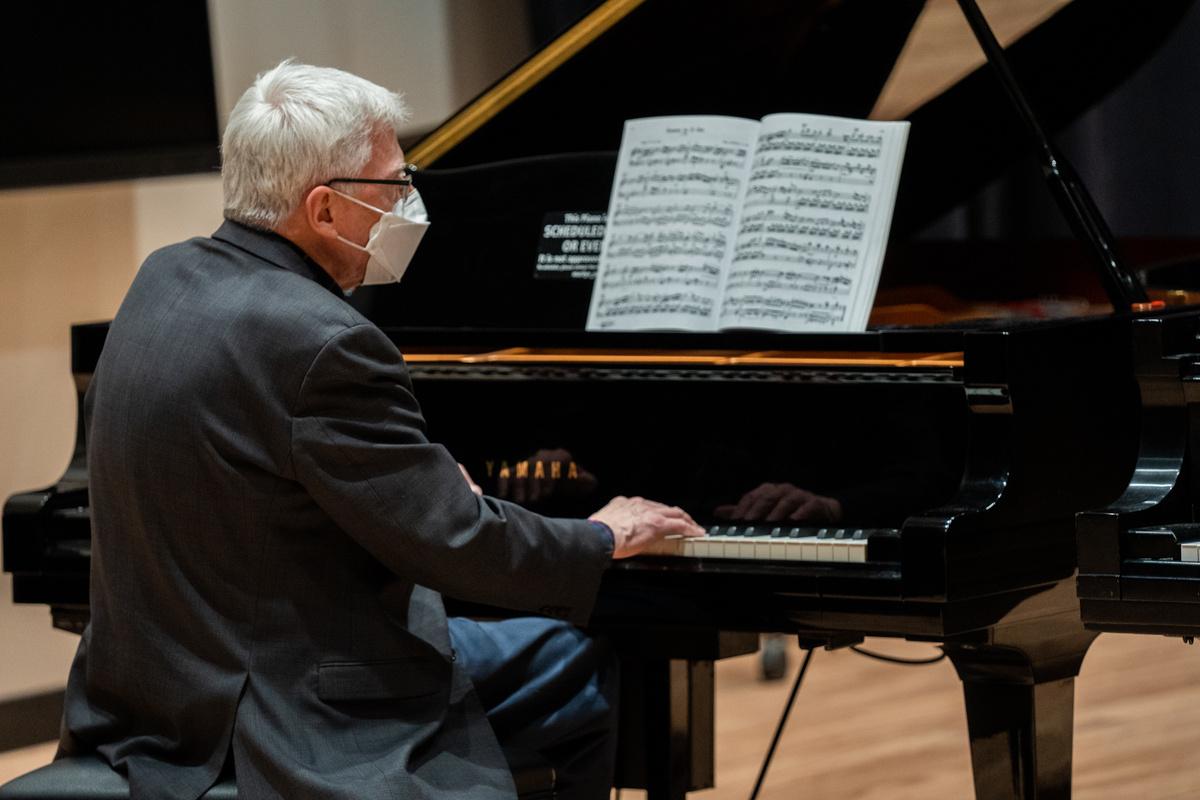
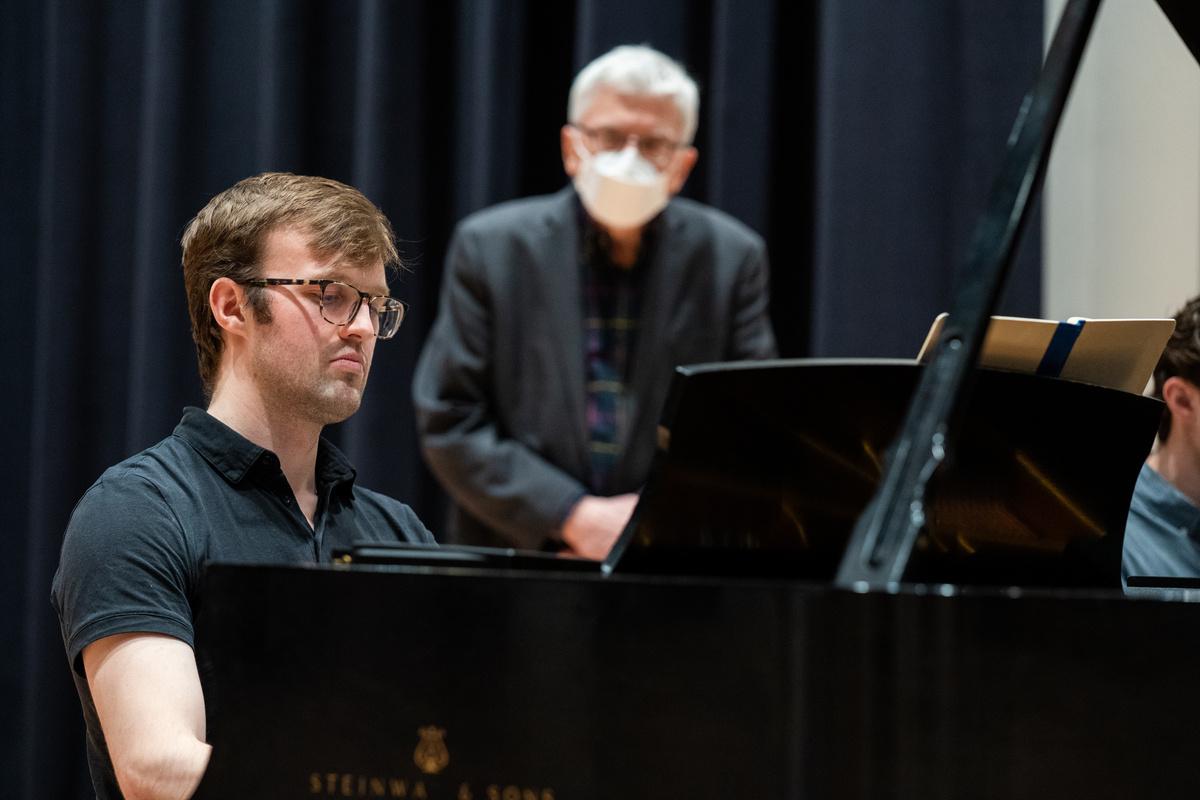
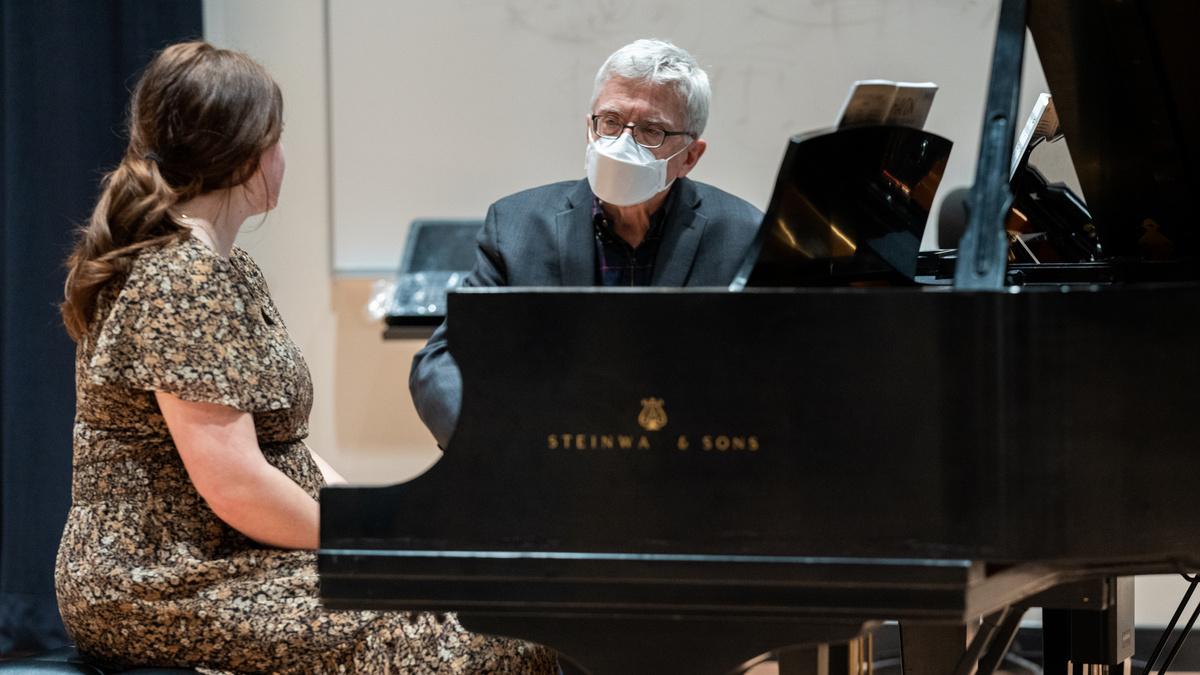
While at BYU, Bob taught private lessons and mentored students in an observed masterclass. Jacie Glenn (BM, Senior) worked with Mr. McDonald on a Haydn Sonata, and noted how he approached every musical idea with purpose: “I’m inspired … to apply his advice to find meaning in every musical gesture.” Many students commented on Bob’s kindness and sincerity. Dr. Stephen Beus, current piano faculty member, studied with Bob McDonald during his years at Juilliard, and noted that “It was clear how devoted [Bob] was to his students.” Bob exhibited this devotion by insisting that his students build upon their natural sense of music to achieve a higher standard of playing. “Studying with Bob McDonald was one of the great privileges of my musical life,” said Dr. Beus.
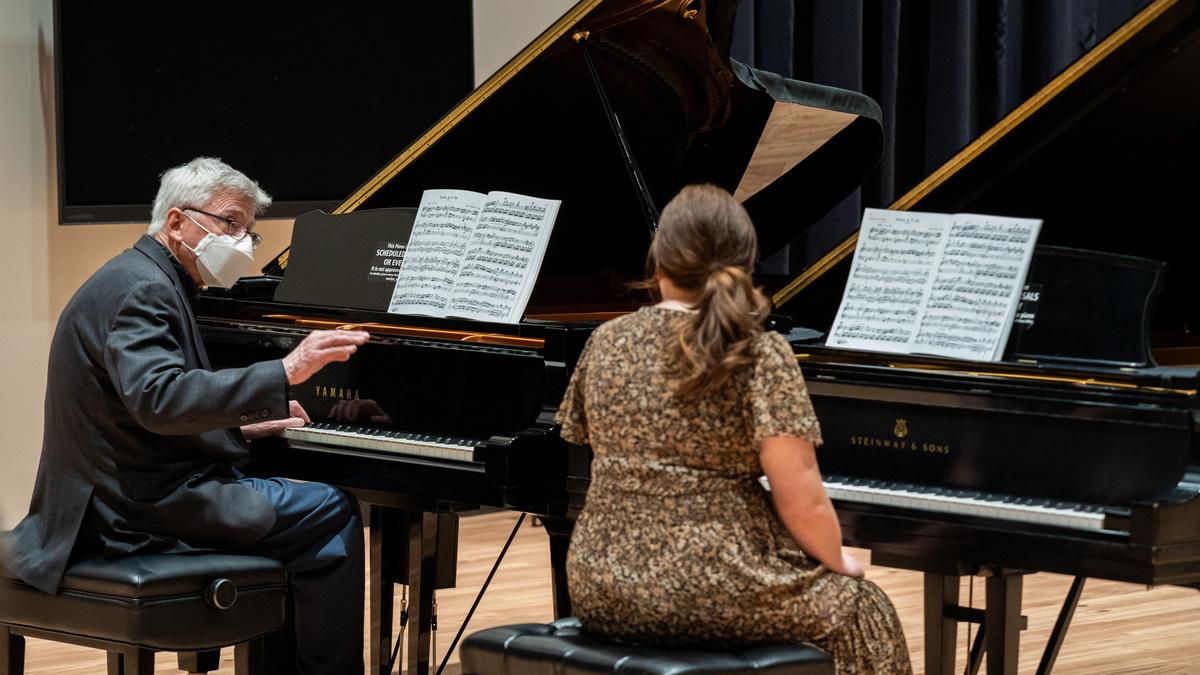
Bob’s love for piano drove him towards teaching, but he also understood that teaching would be an endlessly challenging career. In his early thirties, Bob began his career as a piano teacher at the North Carolina School for the Arts. In our interview, he recalled a snowy December afternoon when he sat reflecting on his experiences as a
new teacher. He remembered thinking, “I knew that I cared deeply about teaching, but I also knew so little as to what it was really all about.” He described a “restlessness” that continually pushed him to become an effective pedagogue, constructively questioning his techniques and always striving to be a compelling and accessible teacher. “A sense of inner restlessness,” he said, “can guide a person towards their goal for their entire life.”
In his many years of teaching, Bob observed that the undergraduate years, and even graduate years, are a tumultuous time of life for students some doubt their ability, motivation, and goals: “It is such a varied process for each person,” he said, “Some people never question where they’re headed, but others will have moments of great doubt.” Bob noted that these doubts are often part of a person’s musical evolution. He poignantly observed that, “If a person doesn’t have to go to the instrument the first thing when they get up each morning, it might not be right for them as a career.” But Bob explained that oftentimes students who have already come so far in their musical education already recognize their need and love for the instrument—they do, in fact, feel a desire to rush to the piano each day. “It should drive your very existence,” he concluded.
"A sense of inner restlessness can guide a person towards their goal for their entire life."
Not only has Bob guided his students through lapses in their musical passion, but he has mentored many to enter the industry as professionals. When asked what one piece of advice he would give to students preparing for professional careers, Bob said, “Whatever it is that you’re hoping for in your career, whatever it is that you dream about, it will likely turn out differently than you think and maybe even better.” He said, “As I think about the events that have landed me here [in his career], I can trace how it has happened, but I would have never guessed that this is where life would bring me.” Bob would advise students who aim for professional careers in music to prepare to be surprised, and to avoid being fearful. “The cautious parts of ourselves may not want to be caught off guard, but [uncertainty] invariably fuels our direction forward.”
Bob spends the majority of his time teaching, but he is an accomplished chamber and solo pianist. Even though he is likely drawn to the instrument each morning, Bob finds time to practice for his performances in the evening after the day’s lessons are complete. During his BYU visit, Bob performed in a solo recital a rare and special treat.
Bob first performed French Suite no. 4 in E-flat major by Bach, followed by Sonata no. 32 in C minor by Beethoven. Beethoven’s final sonata holds a special place in piano repertoire; it reflects Beethoven’s last thoughts on the piano sonata form and his struggles toward the end of his life. Bob observed that the piece is challenging, saying “The work is never done on Beethoven. If you were to study this music until the day you die, you would continue to be a student of this music.” Bob’s interpretation of Beethoven communicated the piece’s restlessness, exhibited by the rolling, nearly toppling lines of scales.
"Whatever it is that you're hoping for in your career, whatever it is that you dream about, it will likely turn out differently than you think— and maybe even better.”
Bob followed his Germanic selections with Chaconne by Carl Nielsen, three preludes by Debussy (Book II), and ValseCaprice no. 2 in D-flat major by Faure. From Bach’s interlocking melodies to Faure’s flowing lines, Bob masterfully captivated his audience with precise yet emotional playing. When asked if he had a favorite piece on the program, Bob said, “I never think of favorites. I would say that I love all of these pieces. I never tire of going into the practice room and trying to address playing them a bit better each time.”


Having Bob McDonald on campus was “a thrill,” according to Dr. Beus, and all those who interacted with him during his visit as audience members or mentored students are sure to agree. Though he might not know it, Bob’s career represents BYU’s ideals of life-long learning and service. For Bob, excellence was not enough, and he relentlessly worked to improve both his playing and his teaching. Bob’s “restlessness” has motivated him to continually learn and improve so that he could then share light and knowledge with his students, being better able to serve them. His devotion to both his students and his music is a driving force in his life and sets an example for all. Bob demonstrates that ever-present curiosity and desire to improve can shape a person’s life all they have to do is go along for the ride.
By Sarah GriffinWOULDYOULIKETOBE FEATURED?
WHOSHOULDBE FEATURED?
EMAILUSAT MUSICEVENTS@BYU.EDU SOWECANHELPYOUR LIGHT SHINE!
In December 2021, Hannah Nielsen (soprano) and Sydnee Hinrichsen (violin) won first prize in the American Protege International Competition of Romantic Music, playing “Violons Dans le soir” by Saint-Saens. They were scheduled to perform in Carnegie Hall on December 28, 2022. Due to canceled flights, Hannah was unable to make it to New York City to perform. Instead, Sydnee and her Utah pianist Jayne Galloway were able to perform the Glazunov Violin Concerto, mvt 1.
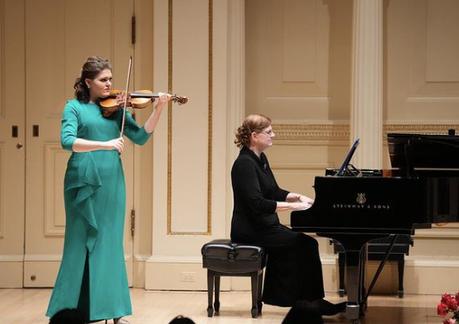
Odle will be joining the Santa Fe Opera as an Apprentice Artist. He will sing in the chorus and Apprentice Scenes program. Odle will also cover the role of Spoletta in Puccinni’s opera "Tosca."
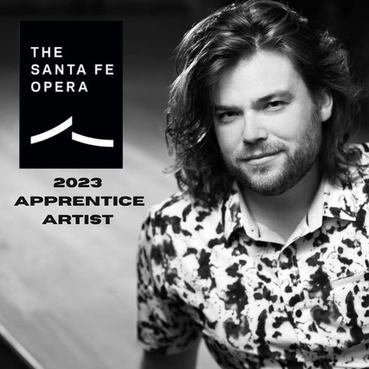



Khalil works as a gigging musician in New York City. He performs as a jazz musician as well as a singer in professional choirs. Jacob recently performed on the acclaimed TV show "Saturday Night Live" as part of a chamber ensemble with British singer/songwriter Sam Smith. Click the image above to watch!
Lawson has accepted a full-time, year-round position with the prestigious Spoleto Festival USA in Charleston, South Carolina as the festival’s Producing Administrator.

Odle took 2nd place at the National Opera Association competition. Over 400 singers applied to the competition, and Aubrey competed against 10 other finalists.

Professor Emeritus Jerry L. Jaccard received a Bachelor of Music Education with a major in secondary school music from the University of Arizona in 1965; a Master of Music Education with Kodály Emphasis and choral conducting from Holy Names College in Oakland, California in 1976; and a Doctor of Education in instructional leadership from the University of MassachusettsAmherst in 1995.
After completing his doctorate, Jaccard joined the Music Education Division of the School of Music, where he developed a unique summer graduate music teacher training program called the BYU InterMuse Academy for Pedagogy and Musicianship, which is endorsed by the Organization of American Kodály Educators. In their 26 years of outreach, they have been able to create 13 full-time salaried and benefited elementary music positions in the Provo public schools, as well as to place music specialists in schools, studios, and community programs locally, nationally, and internationally. “We have students come from all over the world to our summer program.”
Jaccard acknowledged the role of his mother in the early development of his love for music. “My mom was my first real influence. I remember being three years old and she put me down for a nap every afternoon playing classical music. She also took me to hear the Los Angeles Philharmonic. I have a pivotal
memory of that experience and I can't tell you what they played, but it had a profound effect on me.”
“In high school I hadn't really taken up music but dabbled in a few piano lessons here and there. I walked into summer band just out of boredom, and the high school band teacher, Duane Miller handed me a euphonium.” Duane Miller was a war veteran of World War II and a fantastic musician. He played saxophone in the famous Jimmy Dorsey swing band and was the principal clarinetist of the Tucson Symphony. The euphonium ended up being the instrument that Jaccard continued to play throughout his college education, supplemented with juried private lessons on violin and cello, and voice lessons in his Masters program. As retirement projects, he is studying French horn with Kathy Colton, and is a member of the Utah Edelweiss Swiss Chorus and Alphorn group.
Jaccard was largely impacted by the generation of returned veterans from WWII which taught him music growing up and in college. It was through their example that he decided he wanted to become a music teacher. He also discovered in his family line in the 1700s, there were five Jaccard brothers who were church musicians in the region in Switzerland. The brothers were brass musicians that were contracted out to provide music. “I think that's why playing brass has always come easier.”

Jaccard highlighted that BYU’s standards and aims helped him connect a lot of his religious beliefs to music and then to people. Those connections validated his belief that it's important to love what you do. “There is a big difference between a job and a vocation. A vocation is more like a calling or a passion. Yes, we do have to make money, we have to support ourselves and our family, but we have got to love what we do. I feel like I was able to fulfill my vocation here because of this nurturing environment and being around such great teachers and musicians in the School of Music.”
Professor Jaccard spoke frequently of Heinrich Pestalozzi (1746–1827), a European educational innovator. His worked centered on the belief that learning comes from within oneself, and that it is critical that the individual reaches out and brings the information in, a juxtaposition to regurgitating information. “The student has to experience before they can learn. Then you help them identify what they have been experiencing and what more they need to know about it. Once they describe what it is, then you give it a name and a label and a symbol. When a student or a group of students can articulate how they are thinking about and what they are learning, we call that metacognition. It is very important to tap into that.”

Jaccard believes that everyone is inherently musical. “It doesn't necessarily mean everyone is destined to become the world's greatest concert artist or anything, but what is music really worth? It’s a means of expression, a way of thinking that doesn't require words. It's fleeting, it's held in memory, it's held in emotions, and expressed in those ways. Of course we celebrate the gifted and the talented and we want to support them knowledgeably and with great appreciation, but I believe everyone is inherently musical.”
One of the concerns Jaccard has had with the school curriculum is the underrepresentation of female composers. “I'm a father of three daughters, grandfather of eight granddaughters, and greatgrandfather of two great granddaughters. What message are we sending to the girls if we always talk only about male composers?” Jaccard talked about the curriculum tracks he has been developing to ensure there is an equal balance between men and women composers when learning about music history. Since retiring, Professor Jaccard has had published his biography of Hungarian composer Erzsébet Szonyi which was translated into Hungarian and highlighted in the 2016 Hungarian National Book Week, a French to English translation of Belgian composer Jacqueline Baroness Fontyn’s autobiography, is almost finished translating a French language biography of Zoltán Kodály, has his German to English translation of Kodály’s last book in press, and is currently finishing a book on general music pedagogy.
He is excited that it integrates his and his students' stories by interweaving media, lesson plans, and music as a vast body of literature to be explored.
In addition, Professor Jaccard is the editor of the Bulletin of the International Kodaly Society and was recently elected as President of the International Kodály Society, headquartered in Budapest, Hungary. He has done a lot of traveling and “a lot of cheerleading. I just love to build people up!”
Along with raising six children, sixteen grandchildren, three great grandchildren, serving two missions, and spending time as a sealer in the Provo City Center Temple, Professor Jaccard has found joy in his ability to work in the public schools and cultivate music teachers through the InterMuse Academy, guest lecturing, and steering the International Kodály Society through and beyond the Covid years. We have national organizations in many countries on five continents and are now growing more concentrations of teachers in countries with vibrant musical cultures like the island of Borneo (in Malaysia), Brunei, Greenland, India, Indonesia, the Philippines, and Viet Nam. He is especially grateful to have received the BYU Division of Continuing Education 2014 Faculty Teaching Award, the Utah Chapter of the American String Teachers Association 2015 Outstanding Contribution to Music Education Award, and the Organization of American Kodály Educators 2022 Lifetime Achievement Award.
When asked about what he feels the future holds for the BYU School of Music, Jaccard responded, “There's a lot wrong in the world but there's a lot right and this is one of the places where we get it right. We just need to keep doing more of it.”
By Arielle Cline"To the whole school of music family, past, present, and future, Congratulationsonhavingabuildingof yourown!It'samiracleandit'sbeautiful.
To the faculty, loveyourstudents.Help themfindtheirbestway.Helppeople learntolovemusicandmakingmusicand usemusictodogood.
To the students, berealistic.Listen,learn, openup,widenyourhorizons."
-JerryJaccard(BM Piano Performance) won first prize in the MTNA Northwest Regional collegiate competition, and now heads to the national collegiate finals in March.



(BM Vocal Performance)
accepted a paid contract to sing as a Vocal Fellow in the 2023 Spoleto Festival in Charleston, South Carolina. The Festival selects singers from across the nation to perform major choral, operatic, and chamber works.
(MM Choral Conducting)
accepted a paid contract to sing in the 2023 Oregon Bach Festival (OBF) Chorus. OBF, one of the world’s leading music festivals, selects singers through nationwide auditions to form the professional chorus.
(BM Vocal Performance) has recently performed (and soloed) with several professional choral ensembles including the Santa Fe Desert Chorale, American Soloist Ensemble (South Korea), True Concord, Skylark, and Conspirare. Savannah will continue to perform with these prestigious ensembles in the coming months.


The following piano students have been invited to present their research at the following regional and national conferences:
Savannah Jones: The National Association of Music Teachers (MTNA) National Conference, March 2023, Reno, Nevada: "Instagram: Start Building Your Musical Career and Connections Today!"
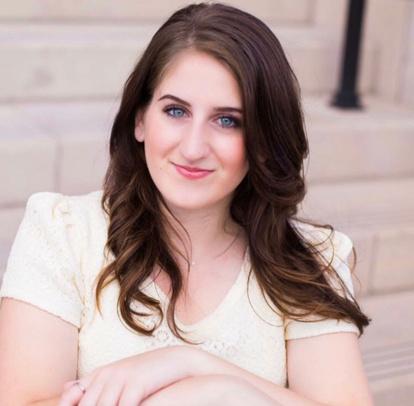

Jacie Glenn and Lela Packard: College Music Society Northwest Conference, March 2023, Boise, Idaho: "Be Empowered: Strategies to Enhance Your Practice Through Effective Journaling"

Sylvan Scott, The National Association of Music Teachers National Collegiate Symposium January 2023, Fort Worth, Texas: "Muscular
Tension and Self-Massage: The Burden Pianists Carry"

Amberlee Abbott, Lauren Cain, Molly Smith, Sarah Shipp, Sylvan Scott, Joyanne Bills, and Professor Jihea Hong-Park: College
Music Society South Central Conference, March 2023, San Angelo, Texas: "Empowering Collegiate Music Students as Agents of Change"
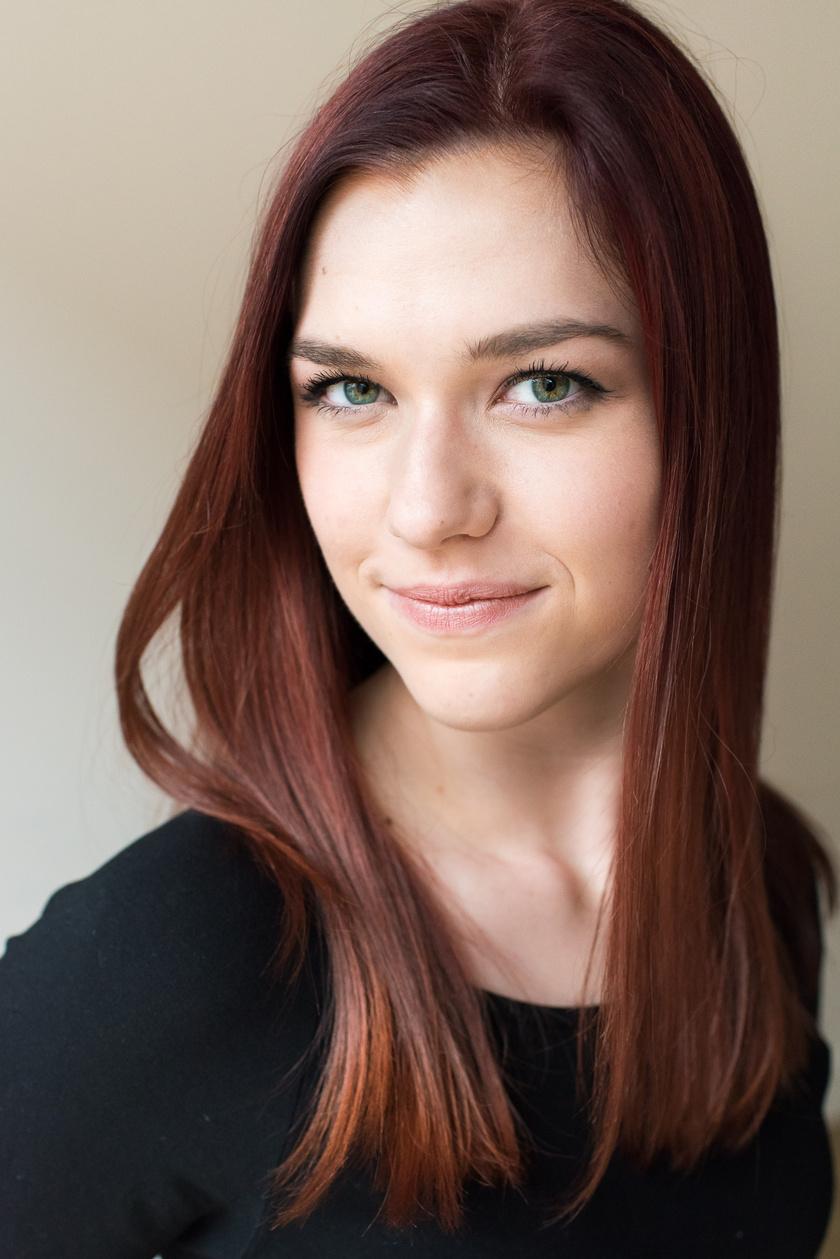
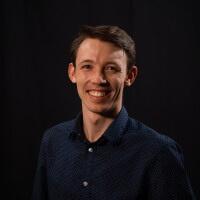

“Full send it and expect nothing,” are the words of Sylvan Scott, a senior in the piano performance program. Scott recently presented at The National Association of Music Teachers’ National Collegiate Symposium in January 2023 in Fort Worth, Texas. He said that if other students want to present at conferences like this they should just go for it. Scott said that when he sent his proposal he did not expect anything to come from it. Before he ever sent in his proposal, Scott said he never considered public speaking and thought it sounded scary. However, while taking his piano pedagogy class with BYU piano professor Jihea Hong-Park, she taught him how to write a proposal and encouraged him to submit one.
Choosing what to present at the conference was easy for Scott because he has always been fascinated by learning. Scott’s presentation titled “Muscular Tension and Self-Massage: The Burden We Carry” focused on how musicians’ muscles can carry so much tension and pain when they are not treated properly.

For his presentation, Scott chose a subject based on his personal experience. During his freshman year of college, Scott was required to practice more than he ever had before. After a month or two, instead of finding enjoyment in playing, Scott found pain. “I had an overuse injury, I couldn’t even play octaves anymore,” he said.
Scott hoped that taking a break from practicing over Christmas would help his condition, but the pain still returned the following semester. He had heard about other people experiencing similar issues with knots in their muscles and began to research as much as he could. After studying, Scott began to test the massage techniques on himself. When Scott tried massaging his shoulders and back for the first time, he remembers that his muscles were so tight that massaging it “was like lightning going through my head.” Scott knew that he wanted to speak about his experience at the conference because he was passionate about it, and it made speaking easier.

Scott said he spent the last year sharing the principles of massage therapy with people to receive feedback, like which phrases made it easier to understand. Through his research Scott learned that one of the leading principles he needed to share is that musicians are just like athletes. “We [musicians] can do things normal people can’t do. We need to take care of ourselves,” Scott said.
Leading up to the conference, Professor Hong-Park helped Scott workshop his presentation during one of their lessons. He also had the opportunity to practice his full presentation for his wife, Brooke Scott’s violin studio. “It allowed me to test out the activities I wanted people to try, and how to teach principles to a group,” Scott said. Although he may have been nervous when he sent in his proposal, at the conference Scott learned he liked public speaking, and found it fun. Even though the conference was primarily made up of individuals who were at least at the doctorate level, Scott remained confident. “I felt I had a place because I had something unique and valuable to offer,” Scott said, “I didn’t feel like I was in competition with any of the presenters.”

Scott shared three big tips for students who want to present at a conference. First, “Full send it and expect nothing,” he said. Scott pointed out that if you never shoot your shot you never know if it’ll ever land anywhere. So, just go for it. The second tip is to find something you feel passionate to speak about. He said that it will make it easier to know what to say and how to say it. The final tip Scott shared is to keep learning and contribute in unique ways. He said, “Everyone is still trying to figure things out, even people who have been in their careers for a long time.” When Scott was little he thought adults knew everything but as he has grown up he has realized that is not true. “There is still so much to learn and we can share and help others with. So don’t think you don’t have anything unique to give,” Scott said. Scott’s pursuit of knowledge and his willingness to share is a perfect example of how when people share their experiences and knowledge they lift and help others. When knowledge is shared light is also shared.
 By Kate Parrish
By Kate Parrish
Dr. Nate Seamons appeared as the guest conductor and clinician at the Utah Rural High School Honor Band in Richfield, Utah (November, 2022) and the 2022 Davis School

District High School Honor Band in Bountiful, Utah (December, 2022).
Professor Youngs performed as Rodelinda in the American Baroque Opera Company's presentation of "Rodelinda" on February 4th and 5th.


received the Music Educator of the year award at the UMEA conference on February 4th and 5th.
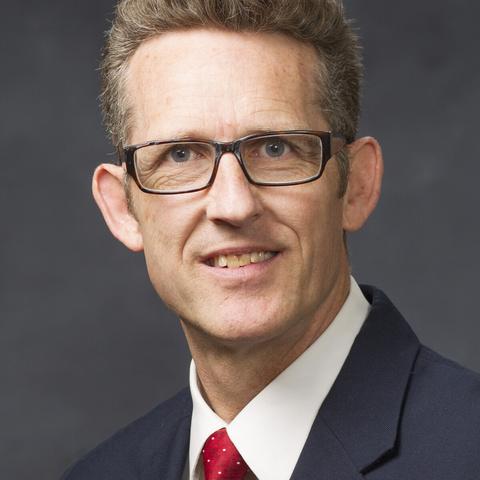
Andrew Crane appeared as a guest conductor and clinician at the Virginia Music Educators Association District II Honor Choir in Virginia Beach, February 10-11, 2023.
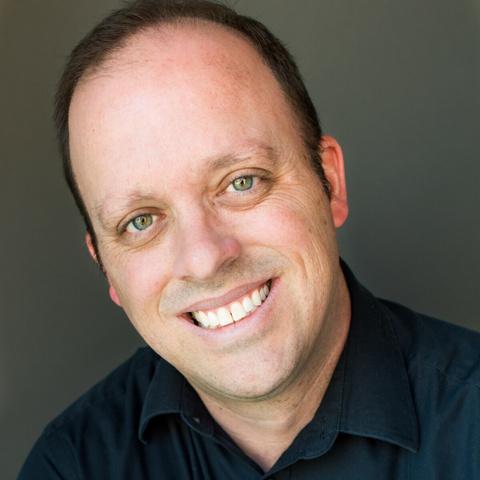


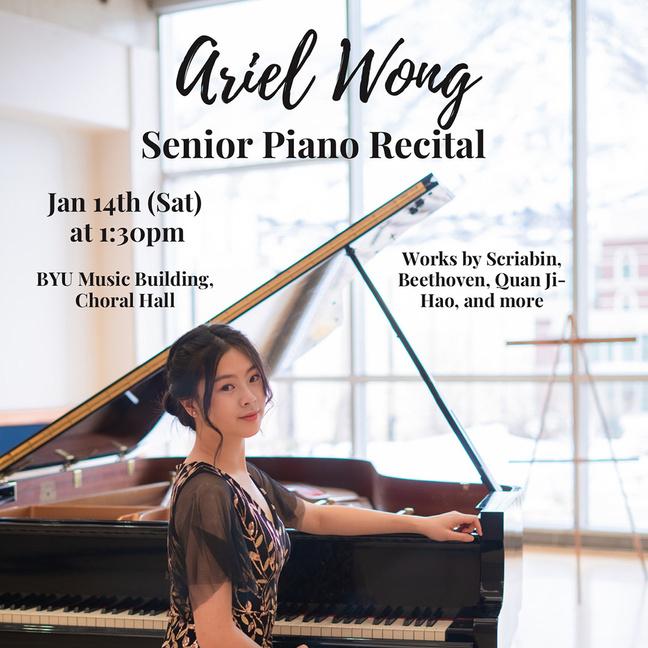



String Bass
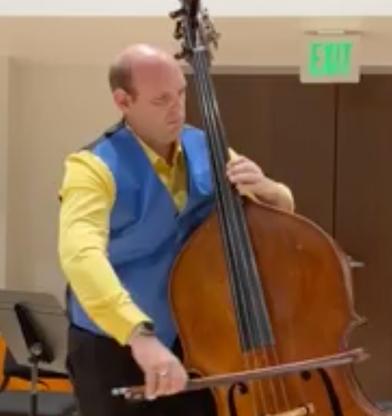


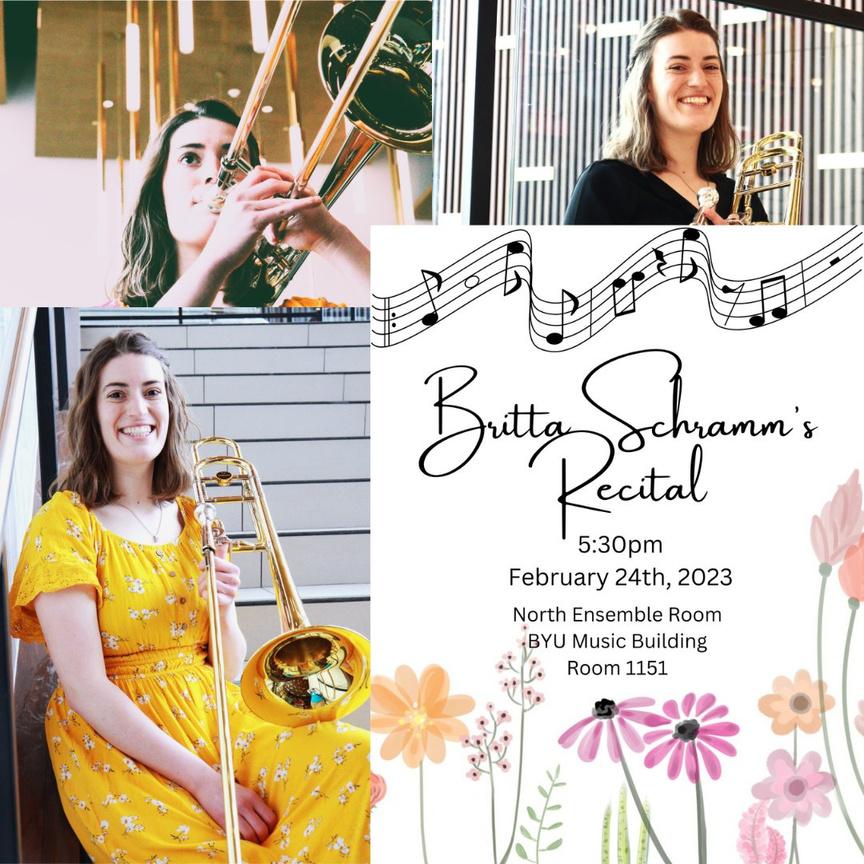
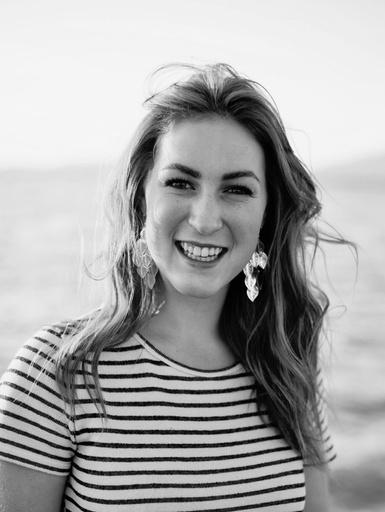
WOULDYOULIKETOBE FEATURED?
DOYOUKNOWSOMEONE WHOSHOULDBE FEATURED?
EMAILUSAT MUSICEVENTS@BYU.EDU SOWECANHELPYOUR LIGHT SHINE!
LikeandFollowtheSchoolofMusiconour NEW socialmediaplatformstostayintheloopaboutevents! Clicktheiconstovisitourpagesdirectly,orsearch thehandleslistedbelow.




Brigham Young University School of Music
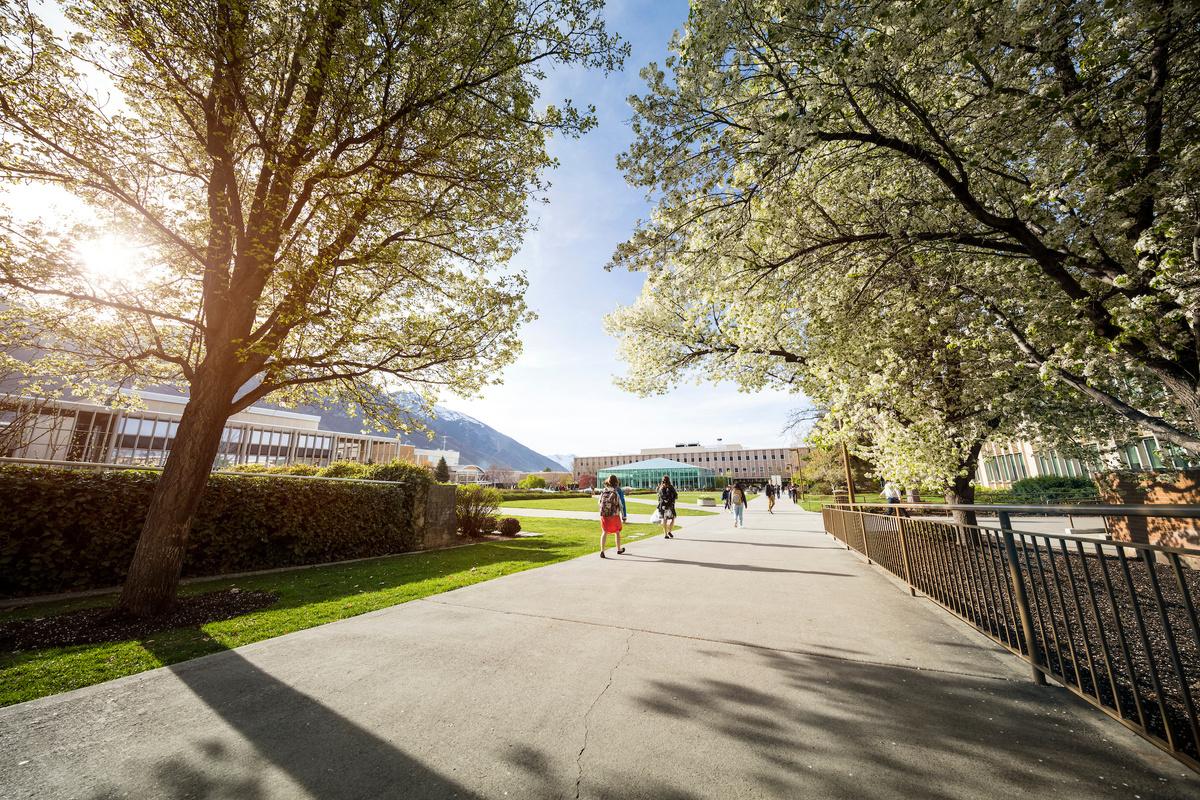
forconsideringagifttotheSchoolofMusic.
Werecognizethatdonatedfundsarepreciousandsacred.We strivetousethesefundsappropriatelybycarefullydetermining thestrategicprioritiesforthecollegewhichareapprovedby BYU'sPresident'sCouncilandtheBoardofTrustees.
CLICKHEREtogiveonoursecureonlinegiftform. Selectthefund-"SchoolofMusic-BYU"
Pleasecall(801)422-8611ifyouhavequestions,ifyouwould likemoregivingoptions,orifyouwouldliketogiveyour informationoverthephone.
